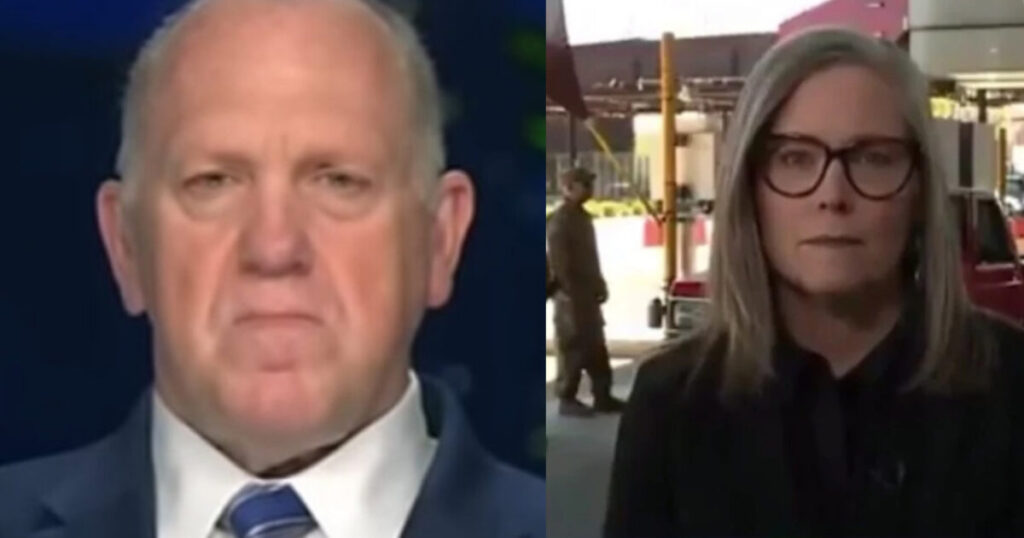Tom Homan, the incoming Border Czar under President Trump, has expressed strong criticism of Arizona Governor Katie Hobbs for her stance against federal immigration policies. Homan suggests that Hobbs, who he accuses of stealing the election from Kari Lake, could face multiple criminal charges and possible jail time upon the new administration taking office. Recently, Hobbs publicly stated her intention to reject Trump’s mass deportation policies, framing her refusal as a protective measure for her community. This conflict escalates as Trump has declared plans to announce a ‘National Emergency’ regarding immigration and leverage military support for mass deportations, which Hobbs describes as harmful and dangerous to local residents.
Hobbs has made clear her allegiance to maintaining a welcoming stance towards migrants. During a recent interview, she claimed that mass immigration through designated ports of entry is effectively managing the current border crisis. However, recent reporting from Ben Bergquam indicates that many of these migrants are taking advantage of the Biden administration’s CBP One application, which has been termed the “primary vehicle” for illegal immigration, allowing over a million individuals to enter the U.S. through what are described as “legal” means. Bergquam highlighted the ongoing complicity of the federal government, asserting that they are facilitating clandestine operations for the movement of illegal migrants, in stark contrast to Hobbs’ portrayal of the situation.
In a critical back-and-forth with journalist Kyra Phillips, Hobbs defended her position against Trump’s proposed mass deportation strategies. She emphasized that such efforts would redirect valuable law enforcement resources away from pressing issues like drug trafficking and smuggling. Instead, Hobbs argues for a focus on drug interdiction, asserting that the real work of border security is happening at the ports of entry, where drugs are being intercepted and communities safeguarded. Her strong refusal to collaborate with the anticipated federal deportation strategies stems from a belief that mass deportations would instill fear in communities, fracture families, and ultimately prove detrimental to public safety efforts in Arizona.
Homan’s responses to Hobbs’ declarations have been pointed and combative. He posed a rhetorical question to his followers on social media, asking if they would like to see Hobbs arrested on the first day of the new administration. Homan reinforced the idea that Hobbs prioritizes illegal immigrants over the welfare of American citizens and asserted that her inaction could lead to charges related to neglect of duty and ethical violations. He claimed a sense of moral outrage at what he sees as Hobbs’ complicity in allowing illegal immigration to fester in Arizona, implying that foregoing federal cooperation could have dire consequences.
Despite the increasing tensions, Hobbs stands by her commitment to protecting the estimated 250,000 undocumented immigrants residing in her state, framing her position as one that values community well-being over political expediency. As Trump’s inauguration approaches, the discord between state and federal immigration policies intensifies, with Homan and Hobbs emerging as vocal representatives of the polarized views on immigration in America. Their opposing views encapsulate a broader national debate surrounding how to handle immigration reform and border security effectively.
The clash between Trump’s promises of mass deportation and Hobbs’ assurances to her constituents highlights the complex landscape of American immigration policy moving forward. As laws and policies shift at both state and federal levels, the outcome of this conflict will undoubtedly shape the immigration narrative and impact a significant number of individuals living within the U.S. The focus remains on what actions will be taken, the extent of federal authority in enforcing immigration laws, and how local officials like Hobbs will navigate the conflicting demands of their communities and the new national directives from the Trump administration.

